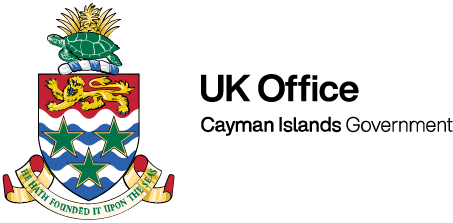Cayman Islands marks series of achievements as Observation Period by the Financial Action Task Force (FATF) comes to an end.
GRAND CAYMAN (GIS) – Progress to ensure the Cayman Islands anti-money laundering (AML), countering the financing of terrorism (CFT) and proliferation financing (CPF) regimes are compliant with international standards reached a significant milestone on Friday, 23 October 2020, as the Observation Period by the Financial Action Task Force (FATF) wrapped up.
The Cayman Islands has been tasked with implementing the Recommended Actions arising from an assessment of the jurisdiction by the CFATF (Caribbean Financial Action Task Force), the regional body of the FATF. The FATF is the global standard setter for combatting money laundering, counter-terrorist financing and proliferation financing. Implementation of these recommended standards is essential to support national compliance and, as a result, protect the Cayman Islands from being placed upon the “grey list” by the FATF.
Since January 2018, the jurisdiction has passed several significant milestones on its way to improving AML/CFT/CPF mechanisms:
- In September 2019, an updated National AML/CFT Strategy 2019-2022 was published, laying out a comprehensive action plan and covering topics from sanctions to supervisory frameworks.
- Targeted AML/CFT risk assessments were conducted in 2019 and 2020, with the aim of helping the country understand its risks, assist relevant individual entities implement their own effective risk-aware approaches, as well as to improve supervisory/law enforcement processes. These assessments include:
- Terrorist Financing
- Excluded Persons under the Securities Investment Business Law
- Entities operating in the Special Economic Zone
- Non-Profit Organisations
- International Financial Centre
- The Cayman Islands Bureau of Financial Investigations (part of the Royal Cayman Islands Police Service) was officially formed in 2020, building on the work done by an interim task force set up in April 2019. The unit offers enhanced law enforcement in the investigation of complex, cross-border, financial crimes; 50 investigations have been undertaken, of which 30 are ongoing.
- In September 2020, Customs and Border Control (CBC) strengthened resources focused on seizing the proceeds of crime as these enter the Cayman Islands. CBC teams working at the airport and seaport benefited from the addition of three further high image scanners, to support its existing portfolio of four trained canines and eight fixed and mobile scanners.
- The Financial Reporting Authority (FRA) established a subscription service allowing the receipt of sanction notices when they have been issued, in order to ensure that entities conducting relevant financial business in the Cayman Islands do not breach internationally-set Targeted Financial Sanctions against the financing of terrorism or weapons of mass destruction. Furthermore, financial services regulated by the Cayman Islands Monetary Authority (CIMA) will receive sanctions notifications directly.
- Since January 2020, CIMA now exercises AML/CFT supervision of Registered Persons and has commenced inspections. The Authority has introduced new risk-rating technology to offer an improved data-led risk-based approach and a new division specifically focused on AML/CFT supervision.
- Designated Non-Financial Businesses and Professionals (DNFBPs) are also subject to supervision under the following supervisory bodies, which have issued guidance, conducted outreach, risk assessed entities, conducted onsite inspections, and have issued fines when entities have been found in breach of the Anti-Money Laundering Regulations:
- Attorneys conducting relevant financial business, by the Cayman Islands Regulation Authority (CARA) since 2019.
- Real estate developers, by the Department of Commerce and Investment (DCI) since 2019.
- Real estate agents and dealers in precious metals and stones, by DCI since 2018.
- Accountants by the Cayman Islands Institute of Professional Accountants (CIIPA).
- Since October 2019, company directors’ names (including alternate directors) and managing members of limited liability companies (LLC) have been publicly available from the Registrar of Companies. Since October 2020, further information including authorised share capital, is also publicly available. Legislation was also updated regarding legal arrangements, formalising a trustee’s AML/CFT/CPF responsibilities and allowing government agencies, law enforcement and competent authorities the mechanism to request information from a trustee.
- The FRA conducted a strategic analysis throughout 2019 and 2020 on laundering the proceeds of corruption, one of the main offences identified in the National Risk Assessment. Law enforcement and competent authorities were briefed on the findings in February 2020, which have helped to refine the jurisdiction’s understanding of the risk it faces.
- Targeted and industry-specific outreach has been ongoing since 2019, including in-person sessions for FIs, DNFBPs and NPOs. The sessions feature educational presentations, as well as opportunities for Q&As and direct engagement with the respective regulator. eLearning platforms hosted by Cayman Finance have supported these efforts, with approximately 250 people signing up for the free courses, as of 3 September 2020. A national advertising campaign emphasising that the responsibility for fighting financial crime is everyone’s business was also launched in early 2020 and an improved AMLU website has been operational since then.
The National Coordinator for Government’s Anti-Money Laundering Steering Group (AMLSG) Elisabeth Lees says: “while great strides have already been made, we remain committed to continuing to improve and enhance standards for the jurisdiction, as a matter of national priority. Robust AML/CFT/CPF standards are essential to help us attract quality, sustainable business. Much of the work we have already undertaken so far in this regard places the Cayman Islands very much in line with international standards.”
Attorney General, Hon. Samuel Bulgin, QC, commented: “Despite continuing to deal with ongoing challenges to the jurisdiction from a major global pandemic, the Cayman Islands has taken its requirements to meeting the CFATF’s recommended actions very seriously and acted strenuously in this regard.
“As such, the actions taken collectively highlight our commitment to ensuring that the Cayman Islands obtains positive ratings from global standard setters as well as continuing to remain at the forefront of the financial services jurisdictions in the world.”
After the Observation Period ended on Friday, 23 October, the Cayman Islands now moves into the next phase of the process, where the FATF will determine whether sufficient progress has been made. The final outcome is expected to be announced in February 2021.


